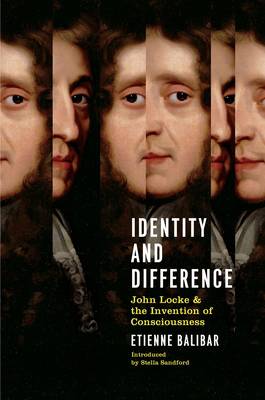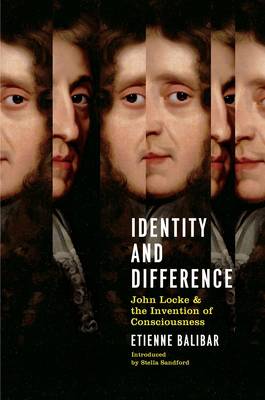
- Retrait gratuit dans votre magasin Club
- 7.000.000 titres dans notre catalogue
- Payer en toute sécurité
- Toujours un magasin près de chez vous
- Retrait gratuit dans votre magasin Club
- 7.000.0000 titres dans notre catalogue
- Payer en toute sécurité
- Toujours un magasin près de chez vous
Identity and Difference
John Locke and the Invention of Consciousness
Étienne Balibar
Livre broché | Anglais
20,45 €
+ 40 points
Description
John Locke's foundational place in the history of British empiricism and liberal political thought is well established. So, in what sense can Locke be considered a modern European philosopher? Identity and Difference argues for reassessing this canonical figure. Closely examining the "treatise on identity" added to the second edition of An Essay Concerning Human Understanding, Étienne Balibar demonstrates Locke's role in the formation of two concepts central to the metaphysics of the subject--consciousness and the self--and the complex philosophical, legal, moral and political nature of his terms. With an accompanying essay by Stella Sandford, situating Balibar's reading of Locke in the history of the reception of the Essay and within Balibar's other writings on "the subject," Identity and Difference rethinks a crucial moment in the history of Western philosophy.
Spécifications
Parties prenantes
- Auteur(s) :
- Traducteur(s):
- Editeur:
Contenu
- Nombre de pages :
- 158
- Langue:
- Anglais
Caractéristiques
- EAN:
- 9781781681343
- Date de parution :
- 08-10-13
- Format:
- Livre broché
- Format numérique:
- Trade paperback (VS)
- Dimensions :
- 155 mm x 231 mm
- Poids :
- 340 g

Les avis
Nous publions uniquement les avis qui respectent les conditions requises. Consultez nos conditions pour les avis.






